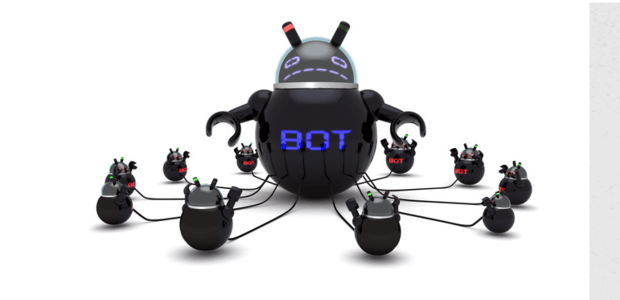advertisement
ISPs should quarantine infected computers, researchers say
The recent effort to disrupt the Gameover Zeus botnet includes plans for Internet service providers to notify victims, but some…

The recent effort to disrupt the Gameover Zeus botnet includes plans for Internet service providers to notify victims, but some security researchers think ISPs should play an even bigger role in the future by actively quarantining infected computers identified on their networks.
Law enforcement agencies from several countries including the FBI and Europol announced Monday that they worked with security vendors to disrupt the Gameover Zeus botnet, which is estimated to have affected between 500,000 and 1 million computers.
“Individuals in the U.K. may receive notifications from their Internet Service Providers that they are a victim of this malware and are advised to back up all important information — such as files, photography and videos,” the U.K.’s National Crime Agency said in a statement on its website.
advertisement
Notifying Internet users of malware infections, especially when their computers become part of known botnets, has become a relatively common practice for some ISPs in recent years.
For example, in the U.S., Comcast introduced security alerts for its Xfinity service subscribers back in 2010, while in Germany the government partnered with ISPs to notify users whose computers are infected with malware on an ongoing basis and help them clean their machines.
However, ISPs should take even a bigger role in the fight against botnets as “desperate times call for desperate measures,” said Rik Ferguson, global vice president of security research at Trend Micro, Monday in a blog post.
advertisement
Despite widespread media coverage of the Gameover botnet’s takedown, press conferences by law enforcement agencies and security alerts issued by computer emergency response teams (CERTs), for the majority of Internet users “the story will just pass them by,” Ferguson said.
The researcher argues that even those users who do normally pay attention to IT security-related news might grow tired of learning of the multitude of data loss incidents and eventually might cease to care, which is why a more aggressive approach is needed.
“ISPs on an on-going basis should take advantage of the threat intelligence feeds of the security industry to identify compromised systems connected to their networks,” Ferguson said. “Those systems should be moved to quarantine, the account owners should be contacted and directed to resources which will enable them to clean up and rectify the situation. Until such time as the infection is remediated the computer should be able to access only limited Internet resources. Don’t care will be made to care.”
advertisement
A computer infected with malware is a threat not only for its owner, but for other Internet users as well in a similar way in which a defective car endangers its driver and everyone else on the road. That’s why cars are subject to an annual check, Ferguson said.
Isolating infected computers and forcing their owners to take action is a good idea that could affect the cybercriminal ecosystem as a whole, said Bogdan Botezatu, a senior e-threat analyst at Bitdefender, Tuesday via email. “These compromised computers are the most precious assets for cybercriminals. The smaller their number, the lower the revenue for crooks and the smaller the incentive to keep infecting random computers.”
Some ISPs might not be able to take such actions because of local legal frameworks and privacy-related reasons, but if a significant number of them start doing it, botnets could become much smaller, restricting their operators’ ability to invest in new command-and-control infrastructure or new attacks.
There are a number of issues that ISPs might face when implementing such a program, Botezatu said. “For instance, their customer base might complain that their traffic is being inspected or that they have lost connectivity when they needed it most. The initial investment for a malicious traffic pattern monitoring technology on the ISP’s side could also be one of the factors that would postpone its implementation.”